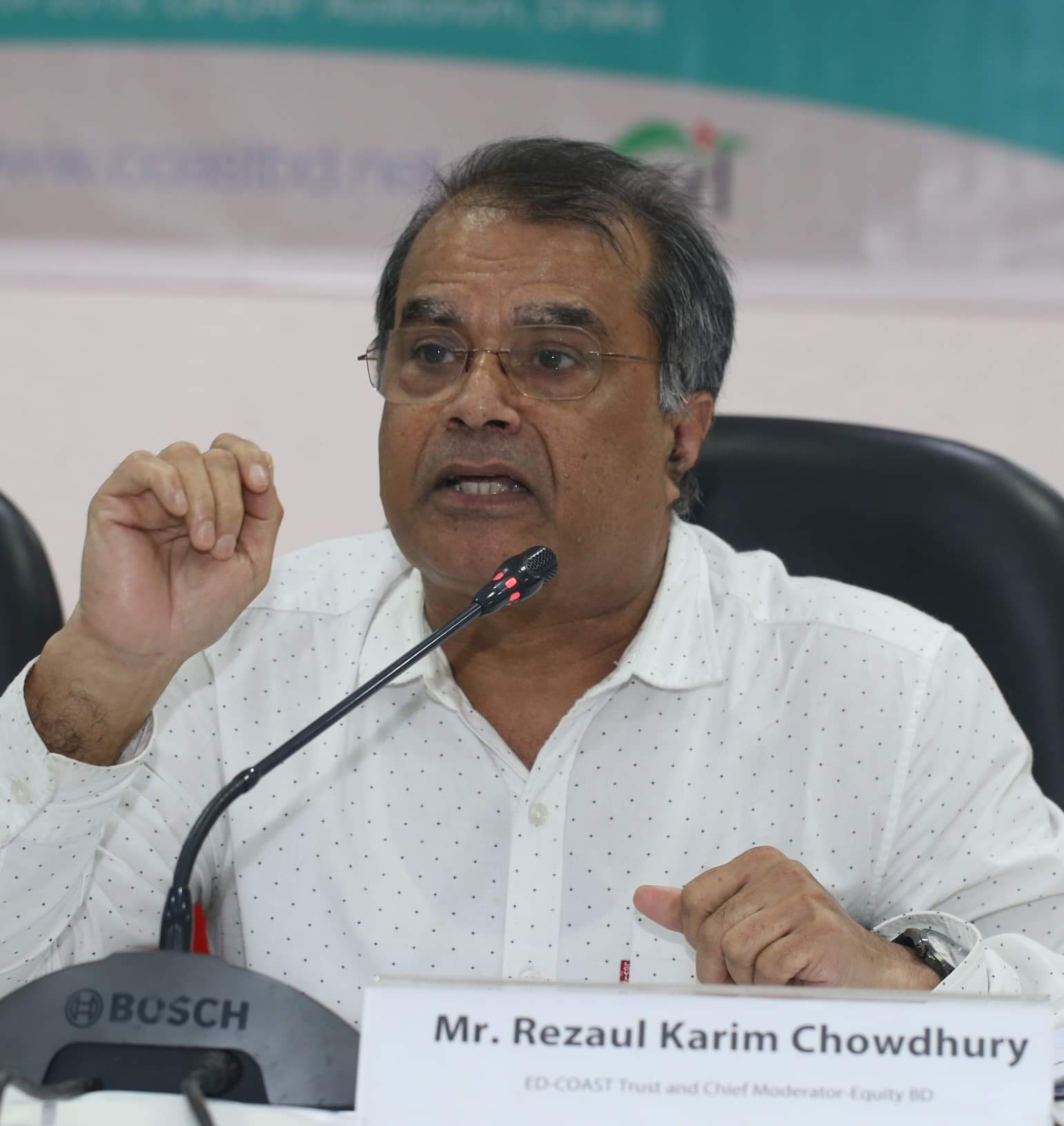Rezaul Karim Chowdhury
Published:2020-07-09 22:19:21 BdST
Localization 2Aid transparency in Rohingya Response and Cost Rationalization
In my first article I tried to describe what localization is and it is the UN process has said about it. It has not came easily, it has come as a result of mobilization from southern governments, actors and especially due to some good hearted UN leaders.
Mostly I have described this from the perspective of humanitarian and development aid. But we have to consider this as your right too, not as mere generosity of some one.
In fact citizen and politicians of developed countries want there should be an accountability and ownership of those aid at the recipient level and there should be a process of gradual reduction of aid dependency / sustainability in this regard in course of time.
There were series of global conferences and declaration as Monterrey Consensus (2002), Paris Declaration of Aid Effectiveness (2005), Accra Agenda for Action (2008), Busan Partnership for Effective Dev Cooperation (2011), and Nairobi Declaration for Effective Dev Cooperation (2016), which has turn aid effectiveness as development effectiveness, where aid has been considered as the right of least developed and developing country’s affected population.
All these conferences were organized by UN agencies and World Bank like multilateral financial agencies, where the notion of local people and government ownership fully acknowledged.
It should be noted that most of these least developed and developing countries were in colonial era and still they are being deprived due to carbon emission by developed countries but the worse climate impact being happened in developing countries.
I have to spell this as I want to urge you to see the aid as your right, then I hope you will have a spirit of taking responsibility to oversee that how this is being utilized, mass awareness is needed in this regard.
General mass people in Coxsbazar paying the brunt of huge aid flow in the district. Average local population paying price hike which is around 35 % in all aspects.
We have calculated that until December 2019 per Rohingya family aid has come per month $ 441, i.e., taka 37,044, and in total it approximately $ 2.5 billion, i.e., 21 thousand crore taka.
But there is a million $ question whether such an amount of facilities is being received by Rohingya families?
In view of Grand Bargain (GB) commitment steam no 1 aid transparency, CCNF was always urging for disclosure of disintegrated data (especially on what is management cost, what is local procurement cost, what is expatriate cost and what is direct benefit cost to per Rohingya family).
The demand was for public monitoring so that public can propose how there will be try out to minimize the cost, as there are every chance that aid will be reduced in course of time, in future with less management cost there should be more service have to be provided to Rohingya families.
Ex Foreign Secretary once upon a time said that UN agencies spend around 65 % management cost, TIB have had a study where they found one UN agency spend around 31 % management cost.
As because UN is hiring staff with high salary, in general staff salary cost in compare to local / national NGO level increase around 265 % in Coxsbazar.
Local NGOs lost around 400 staff, the level is hardly maintainable in future especially from the local / national NGO perspective.
Almost all UN agencies and INGOs have set sub offices in Coxsbazar. Is it necessary while there are daily 5/8 flights between Coxsbazar and Dhaka every day during normal time (not now as it is different situation now)?
At least all UN offices have one common compound in Coxsbazar, INGOs can have same too. The cost of Coxsbazar to Ukhiya travelling is also costly. Its take around 90 minutes and all together not less than 4 hours for a round trip. There are traffic congestion too especially in Ukhiya. There are approximately 2 to 3 hundred vehicles have been used in Rohingya response, it is also a pressure on the Coxsbazar city too. There could be common shuttle service in this regard.
Like other countries, why not all these agencies should live in Ukhiya nearer to the camps, so that refugee will get best service and the travelling cost will be drastically reduced.
CCNF have had given all these sort of proposal always in public while UN lunch their Joint Response Plan JRP) in each year.
Unauthorized use or reproduction of The Finance Today content for commercial purposes is strictly prohibited.


